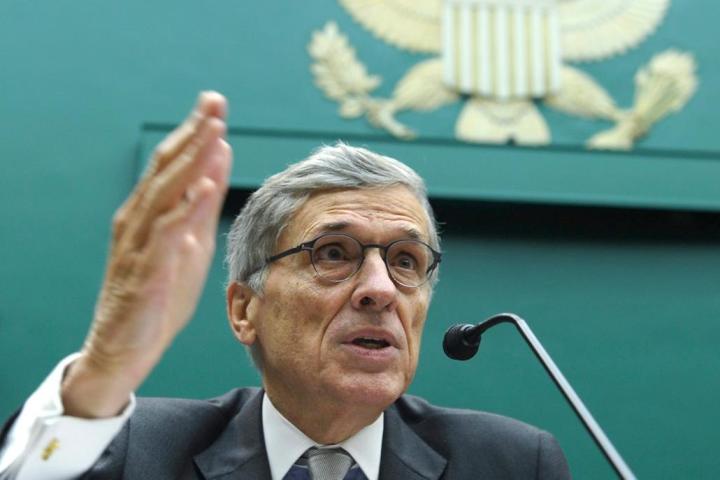
The future of the Internet just got murkier. A Washington, DC, appeals court ruled Tuesday in favor of Verizon, and against the Federal Communications Commission’s controversial “Net neutrality” rules. The decision may open the door for Internet service providers to charge websites and other content providers for reaching users over faster Internet connections.
“Because the Commission has failed to establish that the anti-discrimination and anti-blocking rules do not impose per se common carrier obligations, we vacate those portions of the Open Internet Order,” the court wrote in its decision (see below), which passed with a 2-1 ruling.
“We have built our Internet services on this foundation of openness. Today’s decision does not change that commitment.”
What this means, essentially, is that the court does not believe ISPs have the same obligations that phone companies have to allow any type of traffic over their networks. This ruling is good for ISPs, like Verzion, who argue that it is within their rights to dictate how they doll out broadband. For content providers, this means the playing field of the Internet may no longer be so level – if Time Warner Cable wants to provide good service to customers using HBO Go, but slow speeds for Netflix users, it can now do so without FCC reprisal. And for Americans, it may result in paying more money for the same services, as content providers pass the costs onto their users; and potentially facing stifled free speech on the Web – at least, that’s the fear.
”We’re disappointed that the court came to this conclusion,” Craig Aaron, president and CEO of Internet rights group Free Press, said in a statement. “Its ruling means that Internet users will be pitted against the biggest phone and cable companies – and in the absence of any oversight, these companies can now block and discriminate against their customers’ communications at will.”
Despite lamentations from Net neutrality supporters, the ruling was not a total wash for that camp. The court may have shot down consequential portions of the FCC’s Open Internet Order, but it reaffirmed the FCC’s authority to regulate broadband – powers that the anti-Net-neutrality crowd says Congress never granted to the Commission.

“Needless to say, we’re disappointed in today’s decision. The court has taken away important FCC flexibility, and its opinion could complicate FCC efforts to transition the phone network to IP technology, promote broadband buildout, and other matters,” Harold Feld, Senior Vice President of consumer advocacy group Public Knowledge, said in a statement. “However, the court did uphold broad Commission authority to regulate broadband. To exercise that authority, the FCC must craft open internet protection that are not full fledged common carrier rules.”
In other words, the rules the FCC tried to impose have been struck down. But because the court has now affirmed its authority to regulate broadband, it may now be able to rewrite its open Internet rules, potentially strengthening Net neutrality in the long run.
Broadband for America (BFA), an Internet industry advocacy group that counts Verizon as a member, says that the court’s ruling does not change its members’ commitment to an open Internet.
“We have built our Internet services on this foundation of openness. Today’s decision does not change that commitment,” BFA said in a statement. “We believe passionately in the open Internet and in the right of our customers to access lawful websites and information when, where and how they choose.”
The fight, of course, is not over. FCC Chairman Thomas Wheeler promised to fight to ensure the Internet remains open and level for content and services providers and consumers alike, including the possibility of appealing Tuesday’s decision.
“I am committed to maintaining our networks as engines for economic growth, test beds for innovative services and products, and channels for all forms of speech protected by the First Amendment,” Wheeler said in a statement. “We will consider all available options, including those for appeal, to ensure that these networks on which the Internet depends continue to provide a free and open platform for innovation and expression, and operate in the interest of all Americans.”
Read the full 81-page court ruling below:


